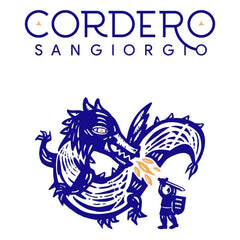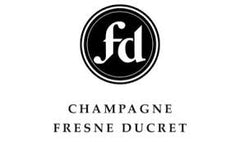Discover a range of wines made of 100% Chardonnay, the most well-travelled white grapes in the world, manifested in different styles and expressions.
113 products
- White Wine
- Chardonnay
- Sustainable
- Dry
- Residual Sugar: 2.00 g/l
- Full Bodied
- 750ml
- 13.50% alc./vol
About the Winery
Kellerei Bozen - Cantine Bolzano

Cantina Bolzano, based in the town of Bolzano, traces its roots to two of Alto Adige’s most historic cooperatives: Santa Magdalena, est. 1930 and Cantina Gries, est. 1908. After deciding to merge in 2001, Cantina Bolzano was created. Bolzano is located in the middle of a valley basin surrounded by hilly vineyards that grow from 200 meters above sea level up to 1000. North and south meet in this valley, and the sun warms the stony soils with its pronounced diurnal temperatures, protecting the vines from the cold.
The average growers’ plots in Sudtirol averages only approx. 1 hectare, and the area, with its famed reputation and steep slopes, is an expensive area to farm. The member of Bolzano (approx. 300 in all) own many of the best vineyards throughout the region, including the Valle Isarco, and pool their resources to create top quality wines. And while no grower is certified organic, many practice organic viticulture and all of them adhere to natural practices in their vineyards. Most growers have lived on their farms with their families for generations. They protect their land and cultivate their vineyards as they have done for generations with total respect of the environment where they live.
Press Reviews
The Wine Advocate
92 Points - Monica Larner
The Cantina Produttori Bolzano 2020 Alto Adige Chardonnay Riserva Stegher shows a soft, mid-weight texture with aromas of orchard fruit, honey, pie crust and pasty cream. This vintage shows good freshness too, with fruit harvested from very steep vineyards in the hills near Bolzano perched at 650 meters above sea level.
- Red Wine, White Wine
- Chardonnay, Pinot Grigio, Pinot Noir
- Sustainable
- Dry
- Medium Bodied
- 750ml
About the Winery
Cordero San Giorgio

Cordero San Giorgio is a new beginning in Oltrépo-Pavese for three siblings who grew up surrounded by their family’s vines at the legendary Vietti Estate in Castiglione Falletto in Barolo. The siblings Francesco, Lorenzo, and Caterina Cordero, are grandchildren of Luciana Vietti & Alfredo Currado, one of the pioneers of the first Barolo crus and considered the “father of Arneis.” Their father is Mario Cordero, Alfredo and Luciana’s son-in-law, who was the company’s co-owner from the beginning of the ‘80s until 2016 when it was sold.
Cordero San Giorgio is located in Santa Giuletta, a village sitting on the first hilly belt of the territory, an area made up of valleys that fan out over the Po Valley with steep slopes and thick ridges. The composition of the soil makes their site particularly suitable for the production of Pinot Nero, making it possible to obtain wines with maximum varietal expression and a strong territorial identity.
The Oltrepò Pavese is a hilly triangle of land in Lombardy, embraced by Piedmont, Liguria, and Emilia-Romagna. A territory dedicated to the cultivation of vines and the culture of wine for centuries: a land of both cultural and gastronomic encounter and exchange. Cordero San Giorgio is in the town of Santa Giuletta, and focuses on working with Pinot Nero, Pinot Grigio and Chardonnay.
- White Wine
- Chardonnay, Sauvignon Blanc, Sémillon
- Sustainable, Vegan-Friendly
- Dry
- Residual Sugar: 2 g/l
- Medium Bodied
- 750ml
- 12.5% alc./vol
About the Winery
Matías Riccitelli
 Matías Riccitelli was born in Cafayete, Salta. He identifies as a traveler and a tireless dreamer. After countless harvests throughout the world, he decided to combine everything he has learned and dedicate himself to exploring the excellent terroirs of Mendoza and the teachings of his mentor, and father, Jorge Riccitelli.
Matías Riccitelli was born in Cafayete, Salta. He identifies as a traveler and a tireless dreamer. After countless harvests throughout the world, he decided to combine everything he has learned and dedicate himself to exploring the excellent terroirs of Mendoza and the teachings of his mentor, and father, Jorge Riccitelli.Matías started his boutique winery in 2009, located in Las Compuertas at 1100 meters above sea level. It is the highest area of Lujan de Cuyo, and here he tends 20 hectares of ungrafted old vineyards. Matías also works with small, independent growers that own their lands at the bottom of the Andes halfway between 1000 and 1700 meters above sea level - in Gualtallary, Chacayes, Altamira and La Carrera.
All harvests are conducted by hand and fermentation takes place in small concrete vats and concrete eggs. Purity and delicacy in winemaking are prized by Matías and great care is taken in preserving the fruit’s singularity in order to obtain vibrant wines.
- Red Wine, White Wine
- Cabernet Franc, Chardonnay, Malbec, Sauvignon Blanc, Sémillon
- Sustainable
- Dry
- 750ml
About the Winery
Matías Riccitelli
 Matías Riccitelli was born in Cafayete, Salta. He identifies as a traveler and a tireless dreamer. After countless harvests throughout the world, he decided to combine everything he has learned and dedicate himself to exploring the excellent terroirs of Mendoza and the teachings of his mentor, and father, Jorge Riccitelli.
Matías Riccitelli was born in Cafayete, Salta. He identifies as a traveler and a tireless dreamer. After countless harvests throughout the world, he decided to combine everything he has learned and dedicate himself to exploring the excellent terroirs of Mendoza and the teachings of his mentor, and father, Jorge Riccitelli.Matías started his boutique winery in 2009, located in Las Compuertas at 1100 meters above sea level. It is the highest area of Lujan de Cuyo, and here he tends 20 hectares of ungrafted old vineyards. Matías also works with small, independent growers that own their lands at the bottom of the Andes halfway between 1000 and 1700 meters above sea level - in Gualtallary, Chacayes, Altamira and La Carrera.
All harvests are conducted by hand and fermentation takes place in small concrete vats and concrete eggs. Purity and delicacy in winemaking are prized by Matías and great care is taken in preserving the fruit’s singularity in order to obtain vibrant wines.
- Sparkling Wine
- Chardonnay
- Sustainable, Vegan-Friendly
- Dry
- Residual Sugar: 4.00 g/l
- Medium Bodied
- 750ml
- 12.00% alc./vol
About the Winery
Champagne Fresne Ducret

Fresne-Ducret is rich in family history and has been rooted in the premier cru village of Villedommange since the mid 1800s. Originally growing grapes for the big champagne houses, it wasn’t until the end of the second world war that the family decided to make their own wine. The tradition carries on today with Pierre Fresne and his wife Daniella (an Oakville ex-pat). Their philosophy is to produce wines that best exemplify the terroir of Villedommange, and they do this with sustainability in mind.
In 2014, Pierre Fresne embarked on a new adventure by creating a limited series of champagnes based on his desire for experimentation. Since then, he has produced one or two of these wines each year. Each are unique, according to his wishes and the profile of the vintage. This unique collection is called Arquémie, the term for alchemy in the Middle Ages. In 2018 Pierre began converting the vineyards to organic viticulture, and 2021 will be their first organic certified vintage.
Press Reviews
WineAlign
94 Points - Michael Godel
Seventh iteration of this small lot luxury Champagne and one to sink both your nose and teeth into its blanc de blancs textures. This is indeed bubbles conceived and consummated for mouthfeel and the way its presence settles so prominently upon your palate. Truly alchemic with essential oils, bitters and tinctures of a mixologists’s pallet to impress upon all that we can assimilate in our assessment and enjoyment of such a sturdy, complex, converse and polemic Champagne. Beautifully oxidative, furthest from the region's pedagogy and simply a concern of the real to potentially profound. Drink 2024-2029.
- White Wine
- Chardonnay
- Organic, Sustainable
- Dry
- Residual Sugar: 2.00 g/l
- Medium Bodied
- 750ml
- 13.00% alc./vol
Press Reviews
Decanter World Wine Awards
97 Points
100% Chardonnay. After a Platinum win for Elgin Chardonnay last year, we all suspected it was only a matter of time before this propitious combination of variety and region would make its way into our Top Fifty. So it proved this year, as this high-sited (200m-450m), mountain-fringed zone in the Cape's deep, ocean-cooled south brought us one of the most memorable of this year's Chardonnay cohort. It's pale dawn-yellow in colour, with taut yet close-knit aromas that suggest plant sap, peeled vegetable and spring leaf as much as green fruits. The 11 months' oak provide an aromatic backdrop without obscuring vineyard character. On the palate, the wine is lean, shapely, intense: a cool waterfall of Chardonnay fruits which sweep seamlessly over the tongue, leaving it looking for more. Drinkability, refreshment and a unique regional style come together memorably here. Best in Show.





























